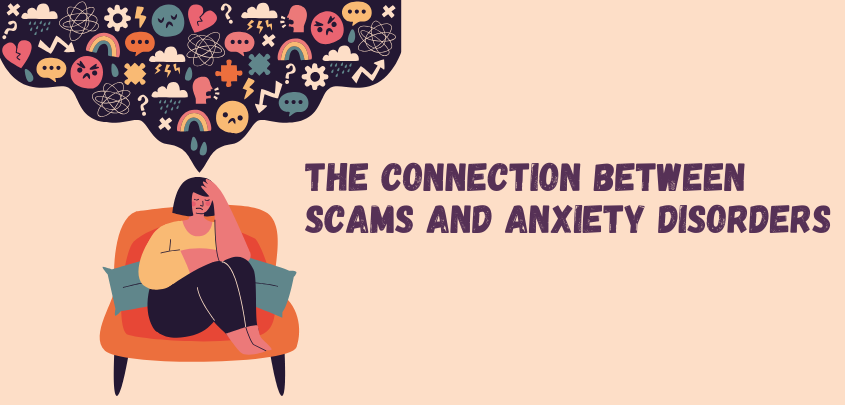
03, Jan, 2025
The Connection Between Scams and Anxiety Disorders
Falling victim to a scam can do more than cause financial loss—it can lead to lingering emotional distress, including anxiety disorders. Here’s how scams and anxiety are connected:
1. The Shock of Betrayal
- Scams exploit trust, leaving victims feeling deceived and vulnerable.
- This betrayal often triggers a heightened fear of future scams, leading to constant worry.
2. Fear of the Unknown
- Victims often replay the incident, fearing unknown consequences like identity theft or additional fraud.
- This “what if” mindset can escalate into generalized anxiety.
3. Loss of Control
- Scams make people feel powerless over their personal information or finances.
- This loss of control is a key trigger for anxiety, as victims struggle to regain a sense of security.
4. Social Isolation
- Fear of judgment or shame often keeps victims from sharing their experiences.
- This isolation can worsen anxiety, making it harder to process and recover emotionally.
5. Overthinking Everyday Decisions
- After a scam, victims may second-guess even small decisions, fearing they’ll make another mistake.
- This persistent doubt can contribute to anxiety disorders over time.
How to Cope and Heal
- Acknowledge the Emotional Impact: Understand that it’s normal to feel shaken and seek support.
- Learn to Recognize Triggers: Identifying what causes your anxiety can help you manage it better.
- Take Preventative Steps: Educate yourself about scams to rebuild confidence and reduce future risks.
Falling for a scam doesn’t define you—but how you address the emotional aftermath does. With time and the right support, you can regain control over your life.
For more tips on coping and prevention, keep following us for expert insights and advice!
